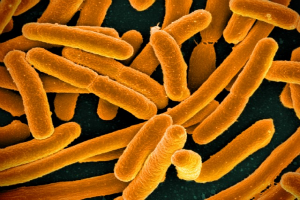 You’re probably already aware of the dangers posed by the overuse of antibiotics. Doing so can lead to the creation of pathogens that are immune to antibiotics, and often can’t be treated by modern medicine. What you may not know, is that these dangers no longer lie in the relative safety of the future. They are already with us today, and these superbugs are killing thousands every year.
You’re probably already aware of the dangers posed by the overuse of antibiotics. Doing so can lead to the creation of pathogens that are immune to antibiotics, and often can’t be treated by modern medicine. What you may not know, is that these dangers no longer lie in the relative safety of the future. They are already with us today, and these superbugs are killing thousands every year.
More importantly, the age of pharmaceutical antibiotics is nearing its end. Last month, a gene was discovered in several strains of bacteria in China, which grants these pathogens an immunity to colistin. This drug was one of the earliest forms of antibiotics, and also the only one that had yet to breed immunity in any strain of bacteria.
What’s worse, is that this gene can be passed to different strains of bacteria, so the genie is out of the bottle. Someday soon, colistin will be useless, and we will be well on our way into the post-antibiotic era. However, some experts on the subject believe that there is still a slim chance of avoiding this disaster. According to Dr. David Brown, who is the director of Antibiotic Research UK, society could turn this ship around if we changed our ways.
Dr Brown told said: “It is almost too late. We needed to start research 10 years ago and we still have no global monitoring system in place.
“The issue is people have tried to find new antibiotics but it is totally failing – there has been no new chemical class of drug to treat gram-negative infections for more than 40 years.
“I think we have got a 50-50 chance of salvaging the most important antibiotics but we need to stop agriculture from ruining it again.”
Resistance is thought to have grown due to colistin being heavily used in pockets of the agricultural industries, particularly in China, often to increase the physical size of livestock.
Worldwide, the demand for colistin in agriculture was expected to reach almost 12,000 tonnes per year by the end of this year, rising to 16,500 tonnes by 2021.
Unfortunately, “50-50” may be wishful thinking. The gene responsible for building immunity against colistin has already been found in the UK. If it’s been found in China and the British Isles, then it’s safe to assume that it has gone worldwide. “50-50” may still be an accurate assessment, but only on the condition that the agricultural industry of every nation, agrees to stop using colistin with such wanton abandon. However, the chances of that happening anytime soon are slim to nil.
Agricultural use of antibiotics has been one of the biggest drivers of superbug development, perhaps even more so than human usage. Doctors may be handing out these drugs like candy to their patients, but farmers have been giving antibiotics to their livestock by the shovelful. They’re not just used to treat individual animals who’ve become sick. They’re often laced with their feed as a preventative measure, and are known to induce growth in the livestock.
In other words, there is a ton of money to be made by dosing animals with antibiotics, and since agriculture is largely a corporate game these days, there’s going to be a lot of lobbying to prevent any new legal restrictions. That’s not to say that it’s impossible, or that it hasn’t been done before. It’s just that there are plenty of barriers that would prevent these laws from being made.
And in any case, the world has been fully aware of the consequences of overusing antibiotics in agriculture for decades, and yet, very little has been done to stop this practice. Now that we’ve finally reached the crisis point that has been predicted for years, is there any reason to believe that suddenly we’ll drop everything we’re doing and change? I doubt it.
It was short-term thinking that brought us here, and that thinking hasn’t changed. As far as the agricultural industry is concerned, it’s too late. So why not milk it for as long as they can? Besides, anybody who stops now is going to be out-competed by other companies that refuse to stop. It doesn’t matter that there’s a small chance of stopping this disaster. Corporations don’t sacrifice profits for small chances.
And finally, suppose that there was a concerted effort to ban this practice. Is it reasonable to believe that every country will go through with it? If even one small nation doesn’t stop using these antibiotics on their livestock, it will be enough to foster these immunity genes which will spread all over the world, as they have already done.
At the end of the day, there is no going back. There is no turning the ship around, and there is no last-minute solution. The antibiotics created by medical science are going the way of the dodo, and only natural alternatives will remain in the aftermath.
This article was originally published at Ready Nutrition™ on December 26th, 2015







Excellent article. Why I am the only one to read/comment on this???